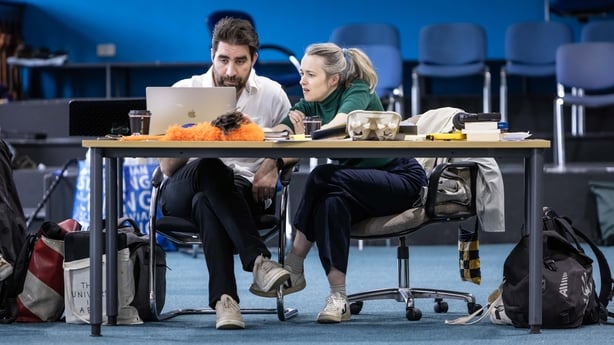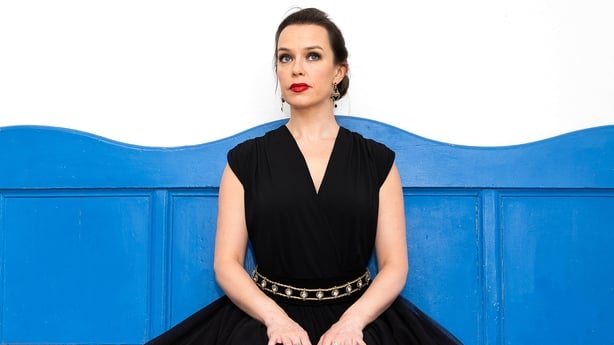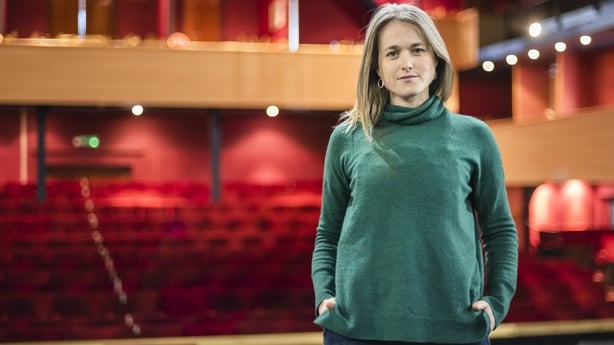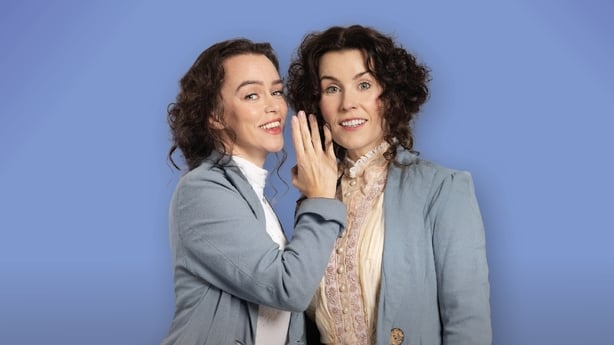'I've flipped the lens, with the objective of interrogating the agency of the female characters at the centre of the story... Director Polly Graham is at the helm of Irish National Opera fresh take on Mozart's Cosí fan tutte - she introduces the production below, ahead of a national tour this May.
All changed, changed utterly
A terrible beauty is born
-William Butler Yeats
Mozart’s comedy Così fan tutte tells the story of two men who are obsessed with proving the idea that their girlfriends will always be faithful. With their misanthropic friend Don Alfonso, the men make a bet and devise a trick. They pose as soldiers recruited for war, leaving their girlfriends to believe they are alone. In actual fact the men return immediately, disguised as two other men. In these new guises they attempt to seduce each other’s girlfriends. Initially this proves difficult (and they feel vindicated), but as the day progresses, the girls betray their original lovers with these "new men". The men abruptly end the trick by staging their return and then feigning discovery of the illicit new relationships. They use this evidence to chastise and shame their girlfriends before settling down to live the rest of their lives with them. The title, roughly translated from the Italian, means "all women act like this". It implies a judgment and a position of authority.
"No opera is quite so forthright in its contempt for women" is writer and New York Times music critic Alex Ross's view of Così fan tutte. He is right.

Lorenzo Da Ponte, Mozart’s librettist, offered a tagline - maybe to win back the 50 percent of his potential audiences who may have been alienated by the first title, 'la scuola di amanti', or 'the school for lovers'. Is it? 'A school for how to uphold a long tradition of putting women in their place', more like.
In creating this new production for Irish National Opera (INO), I've flipped the lens, with the objective of interrogating the agency of the female characters at the centre of the story. Their power at the beginning of the opera is very small compared to the men who are playing with the lives of these women. However, once the two girls believe in and start to relate to the new lovers, there is a shift. A brilliant effect starts to take place, where the two girls accept this new reality and step into it, embracing power through their newly awakened emotions, with their original boyfriends struggling to win it back. In rehearsals we call this the "Frankenstein effect" because as the men conduct this experiment on their girlfriends, there is a radical shift in power, just like Viktor Frankenstein and the monster he creates.
We need your consent to load this rte-player contentWe use rte-player to manage extra content that can set cookies on your device and collect data about your activity. Please review their details and accept them to load the content.Manage Preferences
Listen: RTÉ Arena on INO's new production of Così fan tutte
I was interested in the idea that the girls undergo a process of self-liberation as they begin to take joy in renouncing the values of their past lives, and choose new lovers. This made me wonder what other changes these two women could experience. We have located the action in an Anglo-Irish stately pile in the 1910s. We are riffing off this period, and using its rich palette to elaborate the story. This pre-revolutionary Ireland, as Roy Foster describes so eloquently in his book Vivid Faces, posited so many visions of the future as part of the burgeoning debate for nationhood. Feminism, socialism, romanticism, Bolshevism are just some of the ideas which intersected in the zeitgeist of the era.
This situation has allowed us to push the comedy of the piece:

What if two dim-witted, landed West Britons seriously underestimated their fiancees? What if they stupidly assumed the characters of two far more interesting men - Dion Boucicault-inspired artistes (based on The O'Kalem theatre company, who were making early silent films in Ireland at this time) to test the fidelity of their lovers? What if, in leaving their two girlfriends free to think for themselves, the girls tune into & absorb the possibilities of the socio-political movements of the time?
What if these two upper middle class ingenues not only discover a new emotional identity in their new found desire with their new boyfriends, but also a new-found intellectual and social mojo?
What if, by the end of the opera, these girls become Constance Markievicz-inspired political radicals?

We have developed this theme of the Anglo Irish stately pile as a kind of constructed container for the two cloistered, naive young women, and there’s a parallel between the house & the land which it is inhabiting, and their own bodies, which they initially try to lock away from society and turn into fortresses, before going on a journey of discovery. There’s a parallel between Nora in Ibsen’s A Doll’s House, and the transformation of Fiordiligi and Dorabella. The values which confine them at the start of the opera fall away as they listen to the forward thinking ideas of Despina, who we have loosely modeled on the radical trade unionist and feminist Louie Bennett. Despina encourages Fiordiligi and Dorabella to reframe their understanding of love. Once they start rethinking that idea for themselves, the floodgates open, and all inherited assumptions about reality are up for debate, leading the two women to the question which must prompt all revolutions - does reality have to be like this?

As Despina says to the girls in act one, "Vi par, ma non è ver", "it seems so but it is not true". The O'Kalems are actually fakes, the constancy of a lover is as fragile as the autumn leaves, and the capability & agency of the two young women at the centre of the story, which is assumed by the men around them to be nil, only continues to grow as they discover new versions of themselves.
Irish National Opera’s Cosí fan tutte tours to the National Opera House, Wexford (19th May); University Concert Hall, Limerick (21st May); Gaiety Theatre Dublin (23rd - 27th May), Leisureland, Galway (29th May); and the Cork Opera House (31st May – 2nd Jun) - find out more here.
